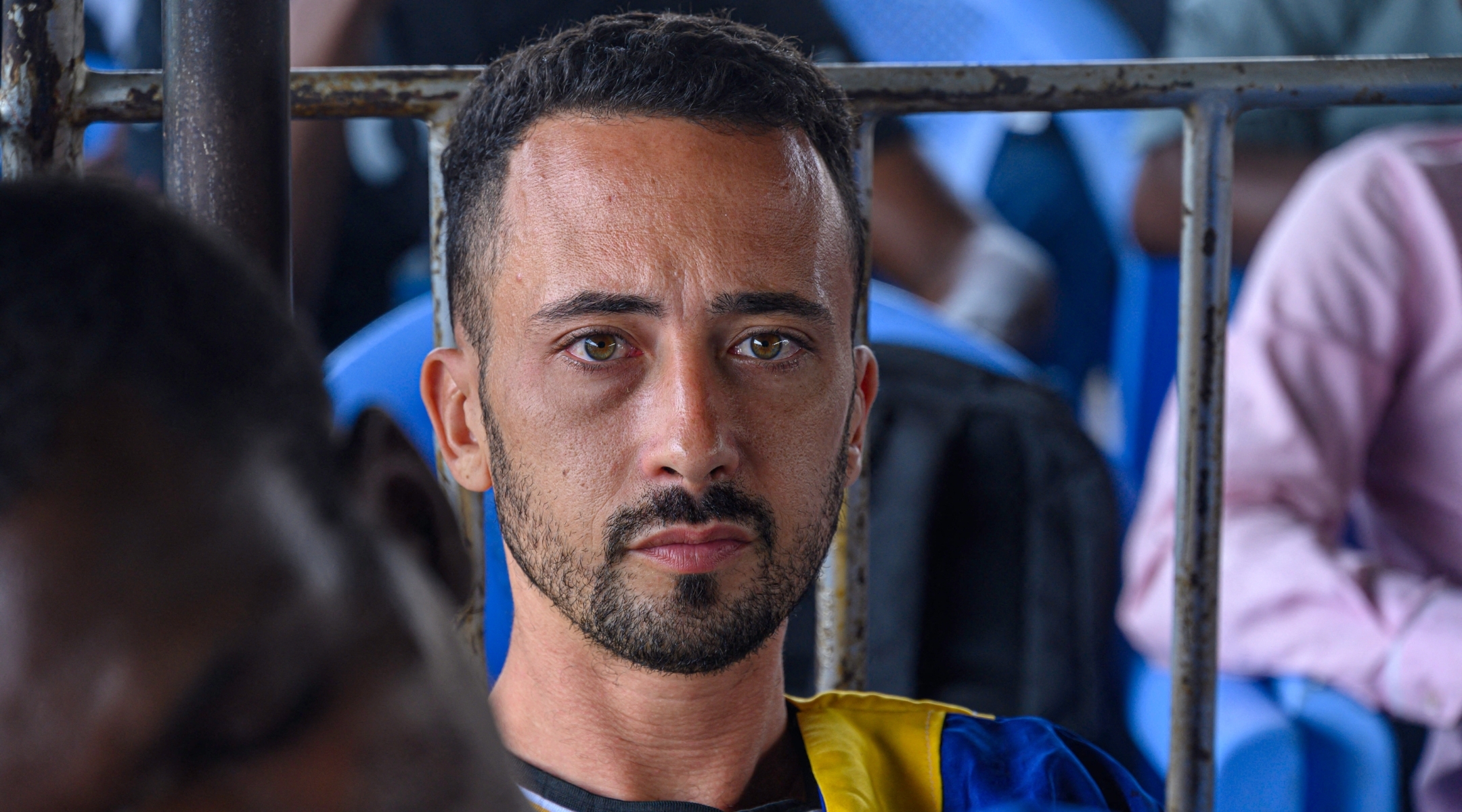American Jewish man sentenced to death in Congo for his involvement in a failed coup
Benjamin Reuben Zalman-Polun — a Washington, D.C. area native and father of three — was one of three Americans among 37 people sentenced to death

American citizen Benjamin Reuben Zalman-Polun, 36, has been sentenced to death for his involvement in a failed coup attempt in the Democratic Republic of the Congo. (Hardy Bope/AFP via Getty Images)
(JTA) — An American Jew is facing the death penalty for his involvement in an attempted political coup in the Democratic Republic of the Congo in late May.
Benjamin Reuben Zalman-Polun — a Washington, D.C.-area native and father of three — was one of three Americans and 37 people total sentenced to death Friday in the DRC over an attempt in May. The failed coup was led by Christian Malanga, a onetime used car salesman and gold miner who sought to overthrow the country’s president, Félix Tshisekedi. Six people were killed in the coup attempt, parts of which were livestreamed, and Malanga was later shot and killed by the Congolese army while resisting arrest.
Zalman-Polun, who pled guilty to conspiracy to distribute marijuana in the United States a decade ago, was reportedly a gold mining business associate of Malanga’s. The other two Americans who were sentenced to death are Marcel Malanga, the son of Christian Malanga, and Tyler Thompson.
Zalman-Polun was at the presidential palace before coup leader Christian Malanga was shot dead, according to photos and videos taken that day.
Zalman-Polun and the other Americans were caught on the banks of the Congo River as they were trying to escape, according to NPR. They claimed at trial that they were forced to participate in the coup at gunpoint.
Zalman-Polun reportedly had been living in South Africa with his family for the past several years. Before that, the family lived in Washington, D.C., where they were members of the Washington Hebrew Congregation, when their first child was born in 2017, according to announcements distributed by the Reform synagogue.
Zalman-Polun is now also the target of conspiracy theories that claim he is a CIA and Mossad agent sent to destabilize the Congolese government. Users on X have been sharing a photo of Zalman-Polun and Christian Malanga taken outside of Golan Spy Shop, a technology and security supply store in Tel Aviv, saying that it is proof that they were trained by Israeli forces.
Congolese law gives the men five days to appeal their sentences. The country reinstituted the death penalty last year.
The U.S. State Department has not declared Zalman-Polun and the other two Americans wrongfully detained, the Associated Press reported, making it unlikely the American government will try to arrange their release.
In May, just hours after the attempted coup, U.S. Ambassador to the Democratic Republic of the Congo Lucy Tamlyn condemned the coup and the involvement of American citizens.
“I am shocked by the events of this morning and deeply concerned by reports of U.S. citizens allegedly being involved,” Tamlyn wrote on X. “Please be assured that we will cooperate with DRC authorities to the fullest extent possible as they investigate these criminal acts and hold accountable any U.S. citizens implicated in criminal acts.”
Zalman-Polun is not the first Jewish intersection with the DRC’s tumultuous politics. Moise Katumbi, whose father was a Jewish refugee from Greece during the Holocaust, has faced ongoing efforts to block him from running for office, most recently last year when a rival pursued a law that would bar candidates whose parents were not both Congolese; Jewish groups abroad condemned the law as antisemitic. The rival ran against Tshisekedi, the subject of the coup attempt, and received less than 1% of the official vote.
A message from our CEO & publisher Rachel Fishman Feddersen
I hope you appreciated this article. Before you go, I’d like to ask you to please support the Forward’s award-winning, nonprofit journalism during this critical time.
At a time when other newsrooms are closing or cutting back, the Forward has removed its paywall and invested additional resources to report on the ground from Israel and around the U.S. on the impact of the war, rising antisemitism and polarized discourse.
Readers like you make it all possible. Support our work by becoming a Forward Member and connect with our journalism and your community.
— Rachel Fishman Feddersen, Publisher and CEO